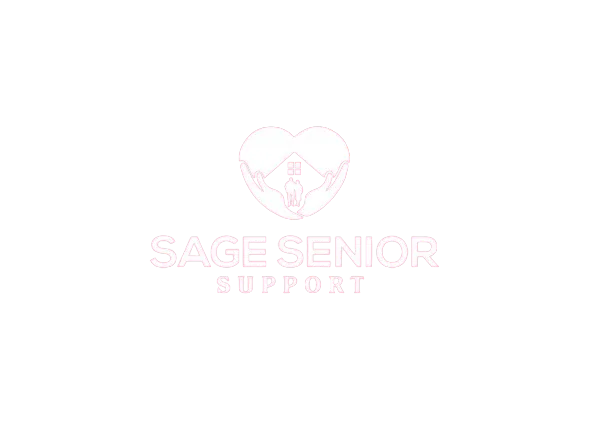
Bruce Willis's Family Did What You're Afraid To Do: Choose Specialized Care
When Bruce Willis's family chose specialized care for his frontotemporal dementia, they faced harsh criticism—but they also avoided a shocking statistic that kills 63% more elderly caregivers than non-caregivers. Here's the difficult decision that could save your entire family.
Key Takeaways
Elderly spousal caregivers face 63% higher mortality rates than non-caregivers, making professional care decisions a matter of life and death for entire families
Bruce Willis's family chose specialized care for his frontotemporal dementia, normalizing what many families consider an impossible decision
FTD care costs $119,654 annually, requiring strategic financial planning beyond typical dementia preparation
Safety red flags and behavioral changes often signal when home care transitions from challenging to dangerous for everyone involved
Specialized memory care environments provide 24/7 monitoring and behavioral management that families cannot replicate at home
When Bruce Willis's wife Emma Heming Willis made the difficult decision to transition him to specialized care, she faced immediate public criticism. Yet behind that choice lay a stark reality that thousands of families confront daily: the crushing weight of caregiving for someone with frontotemporal dementia.

Bruce Willis's FTD Diagnosis Made Professional Care the Only Safe Choice
Bruce Willis's retirement from acting in 2022 initially centered on aphasia, but his family later clarified his diagnosis as frontotemporal dementia (FTD). Unlike Alzheimer's disease, which primarily affects memory, FTD attacks the brain's frontal and temporal lobes—the centers controlling personality, behavior, and language. This distinction creates caregiving challenges that extend far beyond memory loss.
FTD accounts for 10-20% of all dementia cases in the United States, making it less common than Alzheimer's but uniquely demanding. The condition typically strikes between ages 40 and 65, affecting individuals during their most productive years. Early-stage behavioral symptoms include disinhibition, apathy, and impulsivity—changes that can be deeply distressing for family members watching their loved one's personality transform.
Emma Heming Willis's decision to move Bruce to a one-story residence with full-time care wasn't abandonment—it was strategic safety planning. The specialized environment provides easier navigation, professional supervision, and allows their daughters to maintain more normal childhoods while ensuring Bruce receives appropriate care.
Elderly Spousal Caregivers Die 63% More Often Than Non-Caregivers
1. The Life-Threatening Reality of FTD Caregiving
A neurologist delivered sobering news to Emma Heming Willis: elderly spousal caregivers experiencing high stress have a mortality rate 63% higher than their peers. This statistic transforms the caregiving conversation from emotional guilt to life-or-death decision-making. The physical and emotional exhaustion accompanying FTD care creates measurable health risks including depression, anxiety, chronic fatigue, and loss of interest in previously enjoyed activities.
FTD caregivers face unique stressors that research shows increase caregiver strain. Studies identify key risk factors: female caregivers experience higher stress levels, younger caregivers and patients face greater challenges, early-onset diagnoses create additional burdens, increased caregiving hours compound exhaustion, higher nursing care requirements overwhelm families, and financial problems multiply stress exponentially.
2. Unique Behavioral Challenges That Exhaust Families
FTD's behavioral symptoms distinguish it from other dementias in ways that make home caregiving particularly challenging. Patients may exhibit socially inappropriate behavior, poor judgment, and progressive communication difficulties that require specialized intervention techniques. These changes often result in caregivers experiencing loss of emotional attachment to their spouse, leading to isolation and anger—normal responses to extraordinary circumstances.
The unpredictable nature of FTD symptoms means families cannot anticipate daily challenges or prepare adequate responses. Professional care facilities train staff specifically for these behavioral presentations, providing consistent approaches that reduce agitation and maintain dignity for patients while protecting caregiver wellbeing.
3. When Home Care Becomes Dangerous for Everyone
Safety concerns escalate quickly with FTD progression. Patients may wander, operate appliances unsafely, or display aggressive behaviors that overwhelm family members. Unlike memory loss, which develops gradually, behavioral changes can emerge suddenly and require immediate professional intervention.
The specialized training required to manage FTD's complex symptoms exceeds what families can provide through home care alone. Memory care facilities offer secure environments with trained staff who understand the neurological basis of behavioral changes and respond appropriately rather than emotionally.
Emma Willis's Honest Confession About Caregiver Judgment
The Silent Promise That's Killing You
Many adult children carry an unspoken commitment they made to aging parents: "I'll never put you in a home." This promise, born from love and good intentions, becomes a psychological prison when caregiving demands exceed human capacity. Emma Heming Willis acknowledged this internal struggle, recognizing that clinging to unrealistic promises can harm everyone involved.
The belief that "no one can care for my parent as well as I can" reflects deep love but ignores professional expertise. Understanding the financial realities and care options available helps families make informed decisions rather than emotion-driven choices that may compromise safety and wellbeing.
Why Society Shames Families for Seeking Help
Emma Heming Willis anticipated criticism for her family's care decision because society judges caregivers who seek professional help. This judgment stems from outdated expectations that families should provide all care regardless of complexity or personal cost. The reality is that modern medical conditions often require specialized training and 24/7 monitoring that exceeds family capabilities.
Cultural narratives around family duty create shame where none should exist. Professional care represents an extension of family love, not a replacement for it. The Willis family's transparency challenges these harmful stereotypes and provides permission for other families to prioritize safety over societal expectations.
Response Scripts: Exact Phrases to Use When Others Question Your Decision
When facing criticism, prepared responses help maintain boundaries while educating others about complex care decisions:
"We chose the safest option for everyone in our family."
"Professional care allows us to focus on being family rather than their nurse."
"This decision was made with medical professionals based on specific safety concerns."
"We're following our doctor's recommendations for specialized care."
"Every family situation is unique, and this works best for ours."
Setting Boundaries: How to Protect Your Emotional Health During This Transition
Establishing clear boundaries protects emotional wellbeing during challenging transitions. Limit detailed explanations to close family members who need to understand the decision. Avoid defending choices to distant relatives or acquaintances who lack full context about daily care challenges.
Create support networks with other families who have made similar transitions. The Association for Frontotemporal Degeneration (AFTD) provides resources and connections with others managing FTD caregiving decisions. Professional counseling helps process guilt and adjust to new roles within the family structure.
How to Know When Professional Care Is Your Only Option
1. Safety Red Flags You Can't Ignore
Several safety indicators signal when home care becomes inadequate:
Frequent falls or near-falls that occur despite safety modifications
Wandering behavior or getting lost in familiar environments
Unsafe appliance use such as leaving stoves on or forgetting water running
Driving incidents or confusion about vehicle operation
Medication errors including missed doses or double-dosing
These safety concerns require immediate professional assessment and often indicate the need for supervised environments that families cannot provide safely at home.
2. Health Declines That Require 24/7 Monitoring
Certain health changes demand constant professional oversight:
Significant unexplained weight loss indicating nutritional problems
Frequent hospital visits suggesting inadequate daily health management
Balance issues or mobility problems requiring trained assistance
Incontinence management beyond family comfort or capability
Sleep disturbances affecting the entire household
3. Behavioral Changes Beyond Family Management
FTD's behavioral symptoms often exceed family coping abilities. Professional intervention becomes necessary when patients display:
Aggressive or combative behaviors during care activities
Repetitive actions or questions that create caregiver exhaustion
Socially inappropriate behaviors that cause family embarrassment or isolation
Resistance to basic care like bathing or medication compliance
Communication difficulties that prevent effective daily interaction
4. Social Isolation That Home Care Can't Fix
Isolation affects both patients and caregivers when home care becomes the primary model. Warning signs include:
Withdrawal from previously enjoyed social activities
Loss of friendships due to caregiving demands
Family members avoiding visits due to behavioral challenges
Caregiver depression or anxiety affecting daily functioning
Patient depression from lack of peer interaction or stimulating activities
Professional care environments provide structured social opportunities and trained staff who can engage patients appropriately while giving families respite from constant supervision.
FTD Care Costs $90,000+ Annually
The Annual Financial Burden Per FTD Patient
The expected annual cost of care for someone with FTD is north of $90,000—significantly higher than costs reported for Alzheimer's disease. This difference reflects FTD's unique care requirements including specialized behavioral management, earlier onset requiring longer care periods, and complex medical needs that standard memory care may not address adequately.
These costs include direct medical expenses, specialized facility care, lost wages for family caregivers, and additional services like legal planning and home modifications. The financial impact extends beyond the patient to affect entire family economic stability, making early financial planning necessary for managing long-term care needs.
What Medicare Actually Covers vs. What You'll Pay
Medicare provides limited long-term care coverage, typically covering only short-term skilled nursing or specific medical treatments rather than custodial care. Most families discover that Medicare doesn't cover the daily assistance, supervision, and behavioral management that FTD patients require.
Primary funding sources include personal savings, long-term care insurance, or Medicaid qualification through asset spend-down strategies. Families often need to consider creative financing options including home equity solutions, reverse mortgages, or strategic asset transfers to qualify for government assistance programs.
Sage Senior Support Helps You Make the Data-Driven Decision Bruce Willis's Family Made
The Willis family's decision demonstrates how medical expertise and professional guidance can transform overwhelming caregiving situations into manageable, loving solutions. Their approach—consulting specialists, creating appropriate care environments, and maintaining family unity—provides a roadmap for other families facing similar decisions.
Making informed care decisions requires objective assessment tools, financial planning resources, and emotional support systems. Professional guidance helps families move beyond guilt-driven choices to evidence-based decisions that prioritize safety, dignity, and family wellbeing. The goal isn't replacing family love with institutional care—it's supporting family relationships by ensuring appropriate professional support.
Take Back Your Role as Family: Specialized Care Resources You'll Actually Need
Free Memory Care Decision Guide
Download a detailed guide that walks through the exact steps the Willis family and thousands of others have taken to create specialized care environments. This 15-page resource includes assessment tools, financial worksheets, and professional care planning templates that transform overwhelming decisions into manageable action steps.
Home Care vs. Specialized Environment Assessment
A 2-minute assessment helps evaluate your loved one's needs against what different care settings can provide. This tool removes emotion from the decision-making process, focusing on objective safety and care requirements rather than guilt or family expectations.
Local Memory Care Navigator
Finding the right care professionals is critical to your loved one's wellbeing. Local and trusted Senior Placement Agents can connect you with vetted memory care communities in your area who understand frontotemporal dementia and other memory conditions. Local expertise ensures appropriate care matches regional resources and family preferences. To be connected with a local Dallas/Fort Worth area expert, complete Sage Senior Support's short questionnaire.
Financial Resource Guide: Funding Specialized Care
While few families have Bruce Willis's resources, funding options exist for specialized care. Sage Senior Support's eBook, 'Paying For Long-Term Care' outlines ways to fund professional care including insurance options, veterans benefits, home equity solutions, and tax advantages that many families don't know about. Financial planning removes barriers to appropriate care decisions.
Need to Talk with Someone Who Understands?
Family Care Advisors have helped hundreds of families manage this exact transition throughout the Dallas/Fort Worth area. Schedule a no obligation Care Planning Session, a 30-minute call to discuss your specific situation and consider options that might work for your family. Professional support transforms isolation into informed action planning.
Sage Senior Support provides detailed guidance for families managing the complex transition from home caregiving to professional care solutions.


